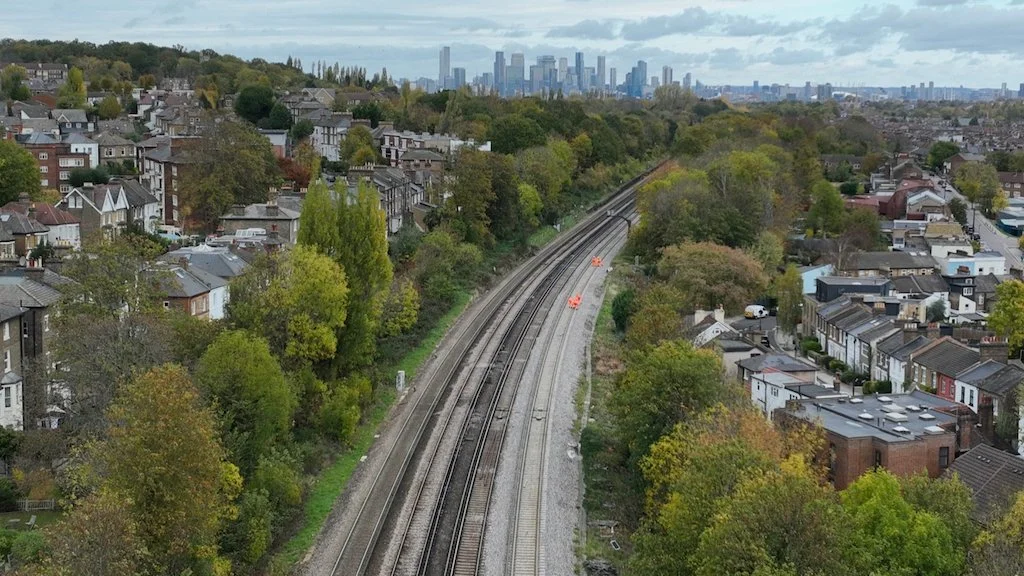UK's first low-carbon track renewal takes place between Honor Oak Park and Forest Hill
Network Rail has completed the UK’s first low-carbon track renewal, replacing 1,150 yards of railway between Honor Oak Park and Forest Hill in south London using sustainable materials and methods designed to reduce embodied carbon without compromising on performance.
image: Network Rail
Delivered by the Southern Renewals Enterprise (SRE) – Network Rail’s integrated delivery team for the south of England – and its track business partner VolkerRail, the scheme is described as a milestone in the drive to decarbonise rail infrastructure.
The project combined green steel rail, low-carbon concrete sleepers, recycled ballast and biofueled trains to deliver significant emissions savings. The work was fully welded, stressed, and handed back at line speed ahead of schedule, highlighting how sustainability can align with operational excellence.
Materials such as steel, concrete and ballast are traditionally responsible for as much as 90% of the carbon footprint in track renewals due to energy-intensive manufacturing processes. To tackle this, the team worked with Network Rail’s Supply Chain Operations (SCO) to develop and implement low-carbon alternatives across all major components. The steel rail was produced using an electric arc furnace, cutting carbon intensity by around 60% compared with traditional blast furnace methods. The concrete sleepers incorporated a reduced-carbon mix that is expected to lower embodied carbon by around 40%, while the ballast used a recycled blend, delivering an estimated 13% carbon reduction by limiting the use of virgin aggregates.
On site renewable HVO biofuel replaced diesel to power machinery and trains, while solar-powered welfare units reduced the need for generators. It is the first time all three primary track materials – rail, sleepers and ballast – have achieved verified carbon reductions on a single renewal project in the south of England.
Overall, the combined innovations cut carbon emissions by 63%, equating to 581 tonnes of CO₂e avoided compared with standard materials and transport. Across the first year of the SRE’s programme, from April 2024 to April 2025, the enterprise achieved a 10% reduction in whole-life carbon against its baseline, signalling measurable progress towards Network Rail’s net zero commitments.
The project has also demonstrated the strength of collaborative delivery between Network Rail, VolkerRail, SCO, and the wider supply chain. SRE Track Project Lead Dave Sutton described the renewal as “the first of many greener renewals we plan to deliver – helping us move steadily toward Network Rail’s net zero goals.” SID Director Liz Baldwin added that the achievement “demonstrates that sustainable rail delivery is not only possible – it’s scalable.”
Following the project’s success, green steel and low-carbon sleepers are now being used across other SRE schemes and set for wider rollout.

